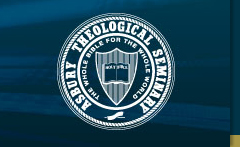This work is accessible only to Asbury Theological Seminary faculty, staff, and students. Off-Campus users should request the resource through our Library Loan system or contact the Help Desk for assistance.
Files
Download Full Text (10.0 MB)
Summary
With an estimated over 350 ethnic groups speaking different languages, Nigeria is not only the most populous country in Africa but it is also the most multi-ethnic society in Africa as well. Such ethnic diversity makes ethnicity an important element in the life of each ethnic group because it provides each group with a positive sense of self-identity, security, self-determination, and belongingness. However, at the boundary of human interaction in a multi-ethnic society like Nigeria, a phenomenon emerges that I called divisive ethnicity (which is a conscious act whereby an ethnic group or groups discriminate against another ethnic group on the basis of ethnic differences). It is in this type of multi-ethnic environment that the Sudan Interior Mission now the Society for International Ministries (SIM) established a multi-ethnic and institutionalized church called the Evangelical Church of West Africa (ECWA). This church is now internally threatened by divisive ethnicity. This study is an attempt to analyze this internal problem in ECWA and to suggest a possible solution. It has been argued in this dissertation that the gospel as preached and lived by SIM missionaries was clothed with Western culture and therefore is incapable of minimizing divisive ethnicity in ECWA. Furthermore, it has also been demonstrated through the study of the institutionalization of religion and its dilemmas that the institutionalization of ECWA also in part exacerbates divisive ethnicity in ECWA. Although external factors such as the sociocultural, historical, political, and spiritual are also involved, I have limited myself to the above two factors because they reveal the internal wellness of the ECWA and the church in Africa in general. A model of the church as the one family of God, as one among many other models, with agape (love) as its fundamental character, has been suggested as a possible solution to the problem. The choice of this model is based on its relational element since family relationship is a core value in African cultures. From this model, seven implications for ethnic relations in ECWA are identified. Among them are, first, where agape exists among members of the one family of God, there is no place for divisive ethnicity; second, God is glorified when Christians view themselves as members of one family; third, an attitude of voluntary surrender is generated; and fourth, God's children are compelled to learn each other's cultures. I have recommended seven strategic interventions. These are: (1) the development of deeper Christian communities; (2) training of servant-leaders; (3) the development of an organizational structure that supports inclusion; (4) the affirmation and celebration of ethnic diversity; (5) facilitation of cross-cultural learning; (6) the exposure of divisive ethnicity as sin and an invitation to repent, and (7) the development of a community of prayer.
OCLC
42139502
Publication Date
January 1997
Publisher
Asbury Theological Seminary
Keywords
literature, relations, Ph, Divisive, Faith, Church, Case, Barje, Seminary, Theological, ECWA, 1997, West, Churches, Thesis, Nigeria, attitudes, Study, History, Sulmane, Africa, Religious, Ethnic, --, growth, Evangelical, Controversial, SIM#Organization#--#History, Africa:, studies, aspects, Mission, 42139502, A, Interior, Race, Maigadi, Ethnicity, Christianity, Sudan, Christian, D--Asbury
Language
English


Comments
x, 377 leaves : tables ; 29 cm. Includes abstract./ Includes bibliographical references (leaves 374-377). Old URL: http://ecommons.asburyseminary.edu/xmlui/handle/10910/13275